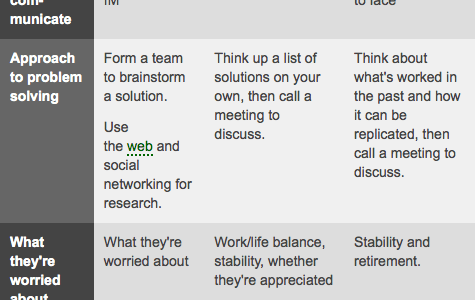by Drew Ribarchak – December 2014
Every sales manager wants the team to sell more full season plans, lower level seats and premium inventory. In-depth metrics allows you to reinforce and hold reps accountable to the goals and objectives your department wishes to achieve instead of saying the basic anecdote of “sell more X.” The most important metric is total revenue and total seats sold. If we better understand how to arrive at the total number, we can develop a strategic way to grow it.
In-depth Metrics to Track
Average ticket price (ATP) or yield is a measuring tool to ensure reps focus on driving lower level and premium inventory. Driving full season ticket equivalents (FSE) is crucial to the success of a ticket sales department, but selling a higher percentage of seats in the upper bowl will make it increasingly difficult to achieve revenue goals alongside FSE targets. In the last two seasons, the Columbus Blue Jackets have increased the ATP of new FSE sales by over 26% while growing the overall season ticket base each season.
You must have a purpose for the data you spend time and resources to retrieve. The most time consuming portion of reporting may be building and formatting the initial report. After the report is created you can simply import/export when you want to review.
Compensation & Contests
In addition to regular reporting, motivation must be in place to reward achieving key organizational metrics. Adjusting compensation plans and contest qualifications will help push the philosophy into action. For example, raise commission percentages on lower level inventory. The reps typically gravitate to the easiest ways to most affect their own bottom lines. You could test this in a contest by allowing only lower bowl and premium sales revenue count towards the short term contest.
Training
When reviewing data on sales performance, a couple of basic questions to ask are:
- How does the rep currently compare to meeting or exceeding the company expectation?
- How does the rep currently compare to peers within the ticket sales team or department?
If you notice a trend of a rep consistently falling well below expectations, one-on-one training sessions can help identify areas for improvement. Since reps have different motivational and behavioral styles, you must use your situational leadership skills to improve the rep’s individual performance.
Carl Manteau, Director of Group Sales, Milwaukee Bucks, offers insight:

Using metrics to “motivate” is a delicate thing – use too many numbers and the reps will think you are micromanaging, which greatly stifles motivation. Use too few and you lose accountability. Reps not held accountable tend to be less driven. I tend to hold some numbers back until they can be used for emphasis, either to show how well we are doing or when we need to pick our game up. I send out the weekly numbers to create accountability and promote a culture of healthy competition.
Additional metrics to measure with the assistance of a CRM/Analytics Department:
- Lead Origin
- B2B vs. Consumers
- Face to face compared to phone sales ( 7.9% higher ATP, 23% higher total sale)
- Average number of contacts to close a new sale
- Close % among leads
Takeaways
In summary, as a sales manager you can use numbers to improve performance. Regular reporting with in-depth metrics will be most effective when it is:
- Aligned to achieve organizational objectives
- Supported with training
- Increases accountability towards realistic expectations







 A commission plan must be consistent year to year and fairly simple to understand. We have made only minor adjustments over the last 12 years.
A commission plan must be consistent year to year and fairly simple to understand. We have made only minor adjustments over the last 12 years. ~
~ 






